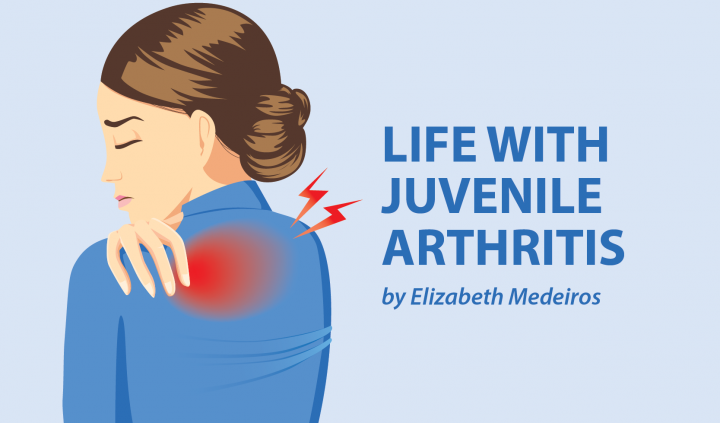Kids of all ages can be affected by juvenile arthritis. JA has a tendency of occurring around ages 3 to 6 and peaking again during puberty. It’s hard at any age, but it can be particularly rough on preschoolers, who may not be able to express how they’re feeling.
Little ones might show pain in ways you wouldn’t expect. While they may do typical things such as limp or refuse to use a painful joint, they may also do things such as act out or refuse to eat. And those things might even occur randomly — one moment they’re OK and the next moment they’re very sick.
As a child with arthritis, I often thought these things to myself:
‘I don’t mean to be cranky — I just don’t feel good.’
Kids with arthritis might be moody and cranky at times. Most children (and adults) are miserable when they don’t get enough sleep, feel sick, or are uncomfortable. But kids with JA deal with those feelings on a daily basis and young ones, in particular, might have a hard time coping. They may lose their cool quickly, be more prone to crying, or give you an attitude.
It’s hard to deal with. It’s hard to discipline a child in pain, but they need to learn that feeling sick isn’t an excuse to be naughty. Try to be patient and vigilant, because this is one of the best ways to know how they’re feeling. Monitoring their behavior can sometimes be a good way to track how your child is feeling, and whether it’s time to go to the pediatric rheumatologist.
‘I’m sorry I magically get better when you take me to the doctor.’
I would like to take a moment and personally apologize to my mother for this. Every parent has taken their sick child to the doctor, only to be cured on the drive over. Unfortunately, kids with JA do the same thing.
Arthritis fluctuates day-to-day, so you never quite know what you’ll get. Your child’s flare might happen to break the day that you go to the doctor. Or they might feel fantastic when you brought them in because their morning stiffness has worn off. And it doesn’t just happen to little ones: I know adults who hope for a bad day when they go for rheumatology appointments.
‘Like other kids, I refuse to eat. But I’m not picky for the same reasons.’
Like most kids, I could be a picky eater. There was at least one point I lived on a diet of tortellini soup, pizza bagels, and instant noodles. But that wasn’t (only) because I was a picky eater — it was because the side effects from my medicines made me extremely nauseous. For a while, salty foods were the only things I tolerated.
Kids with JA might not eat for numerous reasons. Medicine side effects, jaw pain, pain while holding utensils, and fatigue are just a few reasons. My mum told me time and again that she’s not a short-order cook. But there were times that I got my own meals. Sometimes, it’s necessary to accommodate your child when they need soft foods, calorie-dense foods or shakes, or light meals.
‘Mom and Dad: Thanks for everything.’
OK, your kid isn’t thinking this as a preschooler. But they will as they grow up, especially as they become parents. They’ll always appreciate all the love, care, and help. I’ll never forget how thoughtful my parents were in providing me with a low stool when they noticed that playing on the floor was too painful. And I’ll likely pass on taking a bath to “wash away the grumpies” to my own children one day. It’s the little things that go a long way.
***
Note: Juvenile Arthritis News is strictly a news and information website about the disease. It does not provide medical advice, diagnosis, or treatment. This content is not intended to be a substitute for professional medical advice, diagnosis, or treatment. Always seek the advice of your physician or other qualified health provider with any questions you may have regarding a medical condition. Never disregard professional medical advice or delay in seeking it because of something you have read on this website. The opinions expressed in this column are not those of Juvenile Arthritis News, or its parent company, BioNews Services, and are intended to spark discussion about issues pertaining to juvenile arthritis.


